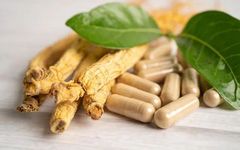Ginseng, known as the “King of Herbs,” has held a significant position in the field of Traditional Chinese Medicine (TCM) since ancient times. It not only enhances the body’s immune system and improves metabolism but also possesses various other benefits. However, ginseng is not suitable for everyone, and there are certain contraindications to be aware of when using it. Below, we will outline the effects, functions, and contraindications of ginseng.
Effects and Functions of Ginseng
1. Enhancing Immunity: The components in ginseng, such as ginsenosides, have immunomodulatory effects that can enhance the body’s immunity and improve disease resistance.
2. Promoting Metabolism: Ginseng can accelerate the metabolic processes in the body, helping to eliminate waste and improve bodily functions.
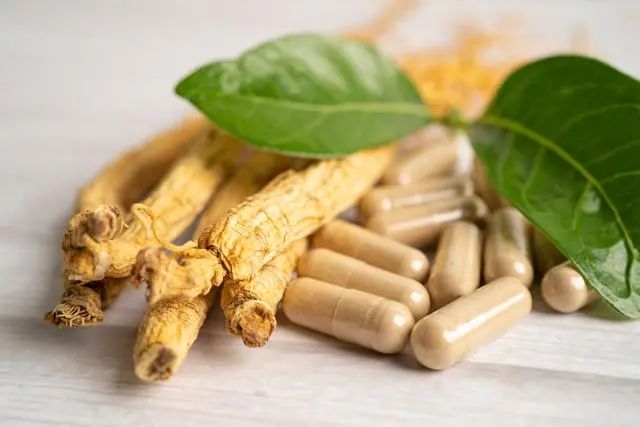
3. Relieving Fatigue: Ginseng has invigorating and anti-fatigue properties, making it beneficial for individuals who are chronically tired or under significant mental stress.
4. Delaying Aging: The various antioxidants in ginseng can eliminate free radicals, delay the aging process, and maintain a youthful state of the body.
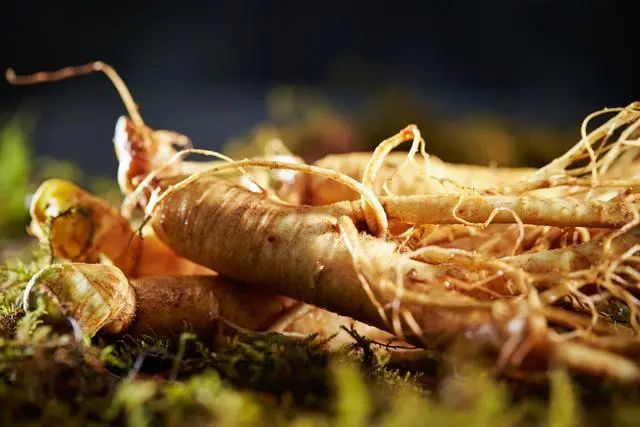
5. Assisting in the Treatment of Chronic Diseases: Ginseng also has effects on regulating blood pressure, lowering blood sugar, and improving sleep quality, providing auxiliary treatment for patients with chronic diseases.
Contraindications for Ginseng
Pregnant and Nursing Women: Ginseng has certain stimulating properties that may adversely affect the fetus or infant, so it should be avoided by pregnant and nursing women.
Hypertensive Patients: Ginseng can raise blood pressure, so hypertensive patients should use it cautiously to avoid adverse effects from elevated blood pressure.
Patients with Acute Illnesses: Individuals suffering from acute illnesses such as colds or fevers should avoid ginseng, as it may exacerbate their condition.
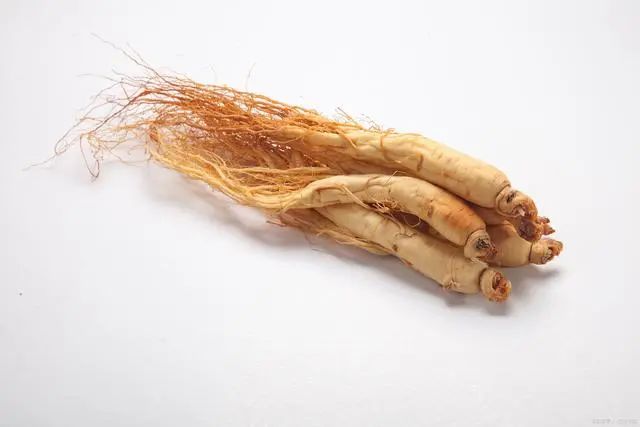
Ginseng Recipes
- Fresh Ginseng Chicken Soup
Ingredients: Half a chicken, one piece of fresh ginseng, five red dates, two slices of ginger.
Method: Clean the chicken and blanch it in boiling water to remove surface blood. Then place the chicken, fresh ginseng, red dates, and ginger slices into a stewing pot, adding four bowls of clear water. Bring to a boil over high heat, then reduce to medium-low heat and steam for two hours. Finally, add salt to taste. - Ginseng Red Date Porridge
Ingredients: 3 grams of ginseng, 10 red dates, 100 grams of glutinous rice, appropriate amount of rock sugar.
Method: Grind the ginseng into a fine powder, wash the glutinous rice, and remove the pits from the red dates. Combine the glutinous rice, red dates, and rock sugar in a clay pot with an appropriate amount of water. Bring to a boil over high heat, then simmer until cooked. Finally, stir in the ginseng powder until well mixed. - Ginseng and Goji Berries Stewed Quail
Ingredients: 10 grams of ginseng, 30 grams of goji berries, 2 quails, appropriate amounts of salt, monosodium glutamate, ginger, scallions, pepper, and chicken broth.
Method: Clean and chop the quails into four pieces, briefly boil in water, then set aside. Rinse the ginseng and goji berries in warm water, and prepare the ginger and scallions. Combine the quail, ginseng, goji berries, ginger slices, scallions, and seasonings in a clay pot, add chicken broth, cover, bring to a boil, skim off the foam, and then simmer for 40 minutes.
Effect: This recipe nourishes qi and blood, benefits the essence, calms the mind, and enhances intelligence, suitable for individuals with weak constitution and insufficient qi and blood.
Effect: This recipe nourishes qi and blood, calms the mind, and enhances intelligence, suitable for individuals with both qi and blood deficiency, insomnia, and forgetfulness.
Effect: This recipe benefits qi, replenishes deficiency, and nourishes the liver and kidneys, suitable for individuals with chronic illness and deficiency of liver and kidney.
Ginseng Discussion: The Shennong Bencao Jing records that ginseng “has a sweet and slightly cold taste, primarily supplements the five organs, calms the spirit, stabilizes the soul, stops palpitations, eliminates evil qi, brightens the eyes, and enhances intelligence. Long-term use lightens the body and prolongs life. It is also known as ‘Renxian’ and ‘Guigai.’ It grows in valleys.” The Compendium of Materia Medica: Most herbs that are tonifying are primarily found in the roots, while leaves are the residual qi of branches and cannot be said to be tonifying. Although ginseng leaves contain residual qi, their efficacy is limited to the skin and limbs, and they are primarily used for generating fluids and moistening dryness, benefiting the lungs and liver. Today, they are generally used to cultivate and replenish original qi, rescuing from exhaustion; why not investigate this further? The Treatise on Cold Damage: Among the 113 formulas, 21 include ginseng, discussing its effects of “warming, moistening, strengthening, invigorating, preserving warmth, enhancing vision, and calming the spirit.”
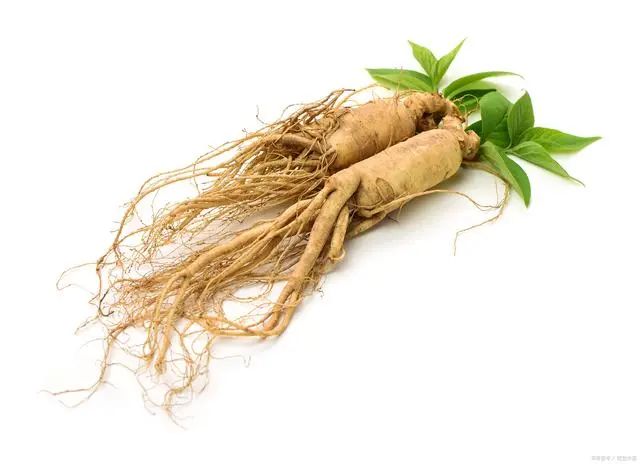
Common Questions About Ginseng
- Can Ginseng Be Consumed Regularly? Ginseng should not be consumed daily, as it is a powerful tonic, and daily consumption may not be beneficial for health.
- What Should Be Noted When Soaking Ginseng in Alcohol? Many mistakenly believe that the higher the alcohol content, the better it can extract the effective substances from ginseng. However, the solubility of effective substances in ginseng varies; some dissolve better in alcohol, while others do better in water. When soaking, animal and plant herbs should be soaked separately, as animal herbs contain proteins and fats that require longer soaking times, while plant effective components dissolve more quickly. Soaking them separately can better control the time and enhance efficacy. The choice of soaking jar is also important; ceramic or glass jars are preferred as they do not easily react chemically with the components in the alcohol, ensuring the quality and safety of the medicinal wine. During the soaking process, avoid direct sunlight and high temperatures to prevent affecting the activity of the medicinal wine. Additionally, avoid adding white sugar or rock sugar, as these may affect the corresponding efficacy of the medicinal wine. If sweetness is needed, honey can be used.
- What Foods Pair Well with Ginseng?
- Ginseng + Angelica Sinensis: Angelica has the effects of nourishing blood, regulating menstruation, and promoting blood circulation. When taken with ginseng, it can nourish qi and blood, promoting blood circulation and alleviating symptoms of heart blood deficiency.
- Ginseng + Rehmannia Glutinosa: Rehmannia has the effects of nourishing blood, enriching yin, and filling the marrow. It is effective for irregular menstruation and kidney yin deficiency. When paired with ginseng, it can nourish qi and blood, working together to provide tonifying effects.
- Ginseng + Longan Meat: Longan meat has the effects of nourishing the heart and spleen, enriching blood, and calming the spirit. When paired with ginseng, it helps to nourish blood and qi, promoting overall health.
- Ginseng + Longan: Longan is rich in nutrients, and when paired with ginseng, it has beautifying effects, nourishes qi and yin, and benefits the spleen and lungs, helping to improve symptoms of palpitations, fatigue, and weakness.
While ginseng is beneficial, it is not suitable for everyone. When consuming ginseng, it is important to choose appropriate combinations and dosages based on individual constitution and needs. Additionally, it is advisable to follow a doctor’s recommendations to avoid blindly following trends or excessive consumption.

